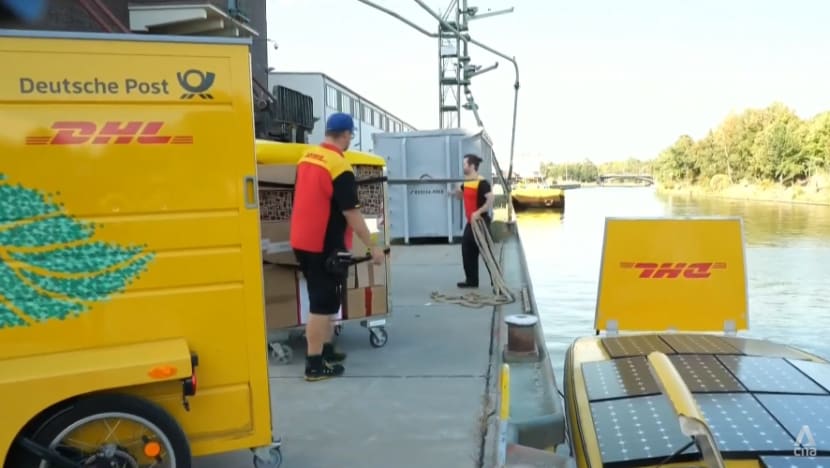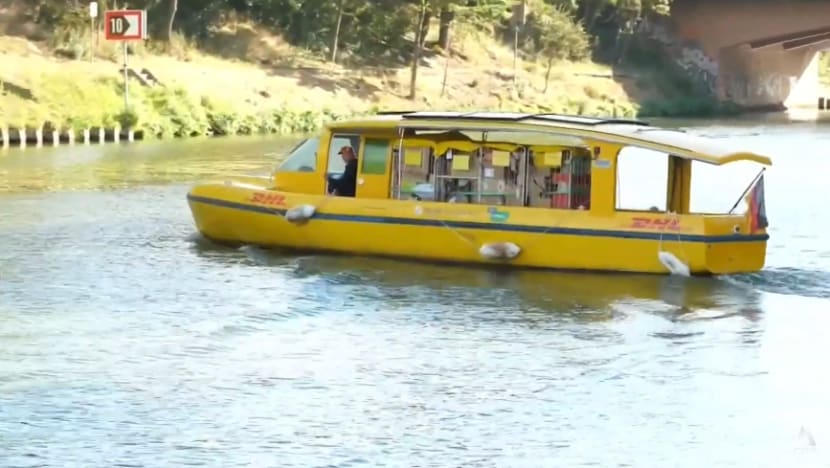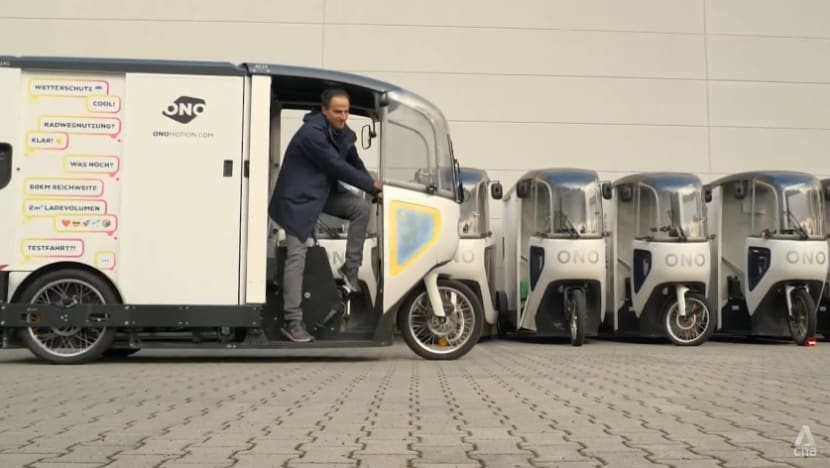German delivery firms drive green transition with solar-powered boats and e-bikes
With e-commerce showing little sign of slowing down, delivery companies are seeking new solutions to help cut their carbon footprint.

DHL staff load parcels onto a solar powered boat for delivery in Berlin.

This audio is generated by an AI tool.
BERLIN: As delegates from around the world gather in Dubai for the United Nations’ COP28 climate change conference, the role of the private sector is increasingly under the microscope.
Climate experts say more needs to be done to cut emissions in the transport and freight sector.
Freight transportation accounts for 8 per cent of global carbon emissions.
With e-commerce showing little sign of slowing down, delivery companies are seeking new solutions to help cut their carbon footprint.
ALTERNATIVE DELIVERY METHODS
In Germany, one of the largest producers of vehicles in the world, firms say they are using innovative alternatives for transport as part of an industry-wide drive to go green.
For instance, DHL, one of the world’s most prominent courier companies, is revolutionising its decades-long parcel delivery process.
The firm is experimenting with cleaner ways to transport parcels, such as by utilising a network of suburban canals that snake through Berlin.
Its boats, painted in its signature yellow hue, are powered by solar panels on their roofs, and batteries on sunless days.
The German logistics giant is seeking to expand its fleet of boats, which it says runs on zero emissions.
“This project is saving emissions every day. Since it started, we have delivered 50,000 parcels this way – that would have been more than 300 van tours that we have saved. This amount is a big step and a sign that this project works,” said the company’s regional communication spokesperson Johannes Nedo.

Aside from slashing its carbon footprint, swapping roads for rivers means less congestion, and reduces noise and air pollution, the parcel firm said.
After docking, staff continue the green delivery efforts by sending the packages to recipients in the immediate vicinity on electric cargo bikes.
The initiative is part of a company-wide push to move towards more climate friendly delivery methods.
“Reducing emissions is one of our most important goals,” said Mr Johannes Nedo, DHL Group’s regional communication spokesperson.
“DHL has the mission to reach net zero emissions by 2050 and therefore we strive for clean transport and this is just part of our strategy.”
ELECTRONIC DELIVERY VEHICLES
Berlin-based Onomotion, which manufactures electric bikes that provide a pedal-powered alternative to traditional diesel vans, hopes that more delivery companies will switch to its vehicles.

"(Using an e-bike is) so flexible. You don't have to find a parking lot … You can park directly in front of the delivery address. You contribute less carbon dioxide (CO2) emissions. All these make the solution much more flexible and better for the environment,” said the firm’s founder and CEO Beres Seelbach.
The company said that due to the design of the bikes, it has been easy to recruit workers without the need for a driving or riding licence, or extensive training.
The company said that carbon savings made for each journey, all add up substantially.
“You save nearly a kilogram or more of CO2 emissions each time. That's the direct savings but there's also indirect savings because you're not causing traffic jams. If you have a van blocking the street causing a jam, you have more CO2 emissions,” said Mr Seelbach.
He said other countries such as Japan, Singapore and Malaysia have shown interest in its delivery vehicles.
Industry players said collaboration with local governments is critical to hitting climate goals by providing the infrastructure to transition away from road traffic-based deliveries, and in turn helping to reduce congestion and carbon emissions.














